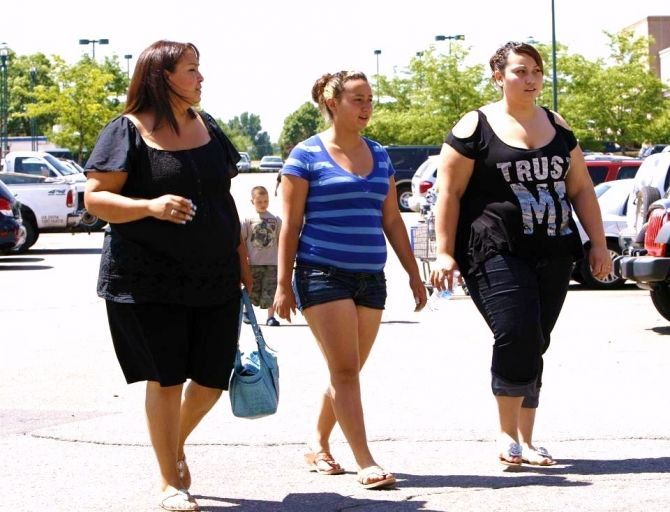Report: Drastic Gov't & More Aggressive Measures Needed to Address Obesity Epidemic

The U.S. has not been aggressive enough in fighting its obesity epidemic, and the country needs to make dramatic changes throughout American society including where people live, work, play and learn, the Institute of Medicine said on Tuesday.
The IOM, which is part of the National Academies offers advice to the government about health issues, said in a report released at the Weight of the Nation conference, hosted by the Centers for Disease Control and Prevention, that obesity has become so deeply rooted and severe that it "constitutes a startling setback to major improvements achieved in other areas of health during the past century," the authors of the report wrote.
The IOM Committee on Accelerating Progress in Obesity Prevention, led by Daniel Glickman, executive director of congressional programs and a former secretary of the U.S. Department of Agriculture, developed a set of recommendations that could "significantly accelerate progress toward preventing obesity over the next decade."
While many existing programs have already made progress in addressing the nation’s obesity epidemic, the U.S. is in desperate need of “a set of obesity prevention actions that, both individually and together, can accelerate meaningful change on a societal level.”
The recommendations emphasize some critical changes to accelerate the fight against obesity like, aggressively promoting daily physical activity, establishing environments that promote healthy eating and expanding the role of healthcare providers, employers and schools in obesity prevention.
Two-thirds of adults and a third of children in the United States are currently overweight or obese, according to and excess-weight related conditions cost the country an estimated $190.2 billion every year, according to the report.
Another study on Monday predicted that by 2030, if the rise in obesity rates continues on its current path, 42 percent of adults may be obese at roughly 30 or more pounds over their healthy weight.
"These staggering human and economic costs, along with the difficulties of treating obesity and the slow progress made in reversing national obesity trends, underscore the urgent need to accelerate progress in obesity prevention," the authors write in a report brief.
The IOM committee said that it reviewed over 800 obesity prevention recommendations to find the most effective ones. The report pinpoints five critical areas or “environments” where obesity can most effectively be tackled: physical activity, food and beverage, public message or marketing, healthcare and work, and schools.
The five goals are listed in detail below:
- Integrating physical activity into people's daily lives
- Making healthy food and beverage options available in all environments and ensure that healthy, nutritious options are routine and easily accessible
- Transforming marketing and messages about nutrition and physical activity
- Making schools a cornerstone of the nation’s obesity battle
- Encourage employers and health care professionals to support healthy lifestyles
The committee recommended some ways of achieving the recommended goals like requiring health options everywhere food is offered, with fast food chains and restaurants editing their menus so that at least half of the choices on the children’s menu follow federal dietary guidelines, the food and beverage industries and media should develop marketing standards that promote healthy lifestyles or be faced with government penalties, making schools improve on the nutritional quality of their foods and promote regular physical exercise.
"As the trends show, people have a very tough time achieving healthy weights when inactive lifestyles are the norm and inexpensive, high-calorie foods and drinks are readily available 24 hours a day," Glickman said in a statement. "Individuals and groups can't solve this complex problem alone, and that's why we recommend changes that can work together at the societal level and reinforce one another's impact to speed our progress."
"Obesity is both an individual and societal concern, and it will take action from all of us — individuals, communities, and the nation as a whole — to achieve a healthier society," IOM President Harvey Fineberg said in a statement.
If these recommended changes are implemented together, they “could profoundly reshape the environments where people live, work, play, and learn," the authors concluded in the report brief. "The force of each action, compounded by the collective ability to accelerate and strengthen each other's impact, can profoundly improve the nation's health."
Published by Medicaldaily.com



























